HAMILTON (IAN)A significant series of 88 autograph and typed letters signed ("Ian") to the poet John Fuller (mostly "My dear John"), the earliest (10 June 1959) enclosing the first issue of Tomorrow ("I would be most interested to hear what you think of it..."), the last in late 2001 ("... As to the illness, it is the big C, I'm afraid... I made the mistake of going to the docs for some quite other thing"), but the vast majority from Sixties relating to their joint work on The Review (detailing strong views on contemporary poets and poetry, progress in finding contributions, finances and practicalities), his reviewing duties (for T.L.S., The Guardian, etc.), and organising a literary programme for the Chichester Festival, as well as private matters relating to his marriage to Gisela Dietzel, money problems, etc., together approximately 130 pages, including airmail letters with integral address, letter cards headed "The Review", etc. from various addresses (including T.L.S. office), various sizes, June 1959-late 2001, but the majority 1960s; together with complete runs of Tomorrow, The Review, and The New Review, a first edition in dust-jacket of Hamilton's The Visit. Poems (1970), various pieces of ephemera (small archive)Footnotes"HAVE A POEM FROM LARKIN - PRETTY FEEBLE REALLY BUT PRINTABLE - I'LL SEND TO YOU A COPY "(15 Nov. 1962).
A rich series of letters from the poet, literary critic and magazine editor Ian Hamilton (1938-1963) written to the poet John Fuller who was his main collaborator on the influential poetry magazine The Review, edited by Hamilton, 1962-1972. The majority were written during the early sixties, when Fuller was teaching in Buffalo, USA and then Manchester, but heavily involved in all aspects of the magazine [see provenance].
Shortly after the first issue had appeared (April/May 1962) Hamilton writes "Is it worth going on with The Review, you ask... we thought that there was a need for a good, selective, hard-hitting poetry magazine, and we might be able to provide one. Of course, all the cards are stacked against us... We are not, I agree, a close-knit group or anything like one - we don't agree about a lot of things, perhaps very basic things (for example, I loathe leisured 'witty' knowing poetry, I loathe that which is assured because it has so little to be in doubt about... I could go on and list my prejudices... [but] what I am personally convinced is that... you, Francis, Falk and Fried are talented, perceptive, rigorous, and for all your possible differences you make up a group that will generate ideas... [we must not] be utterly demoralised by every trifling set back... And it is more important still not to settle for any old second best... I intend to go on with the thing and hope you will be able to, also", capturing the tone of his, at times, messianic belief in the importance of poetry, and his notoriously forthright opinions, which are expressed throughout the letters. For example, "[Peter] Redgrove I am increasingly less sure about - he seems inventive enough, but that's the point - its all invention: no discrimination, he's overawed by his own fecundity: (in every sense)", "Edwin Morgan delivered on Macdiarmid and it is'nt too bad at all", and (12 March 1963) "You heard about Sylvia Plath's death, I guess. App. Hughes had just moved out. Awful. Lucie-Smith wrote to say 'touche - one laughs while one winces and to say how much he hated Roy's poems".
Elsewhere Hamilton expresses his disdain for the influential critic Edward Lucie-Smith ("I keep getting letters from the scrawny, little cock suggesting we meet when he's next in Oxford and all - we must keep cool.". The issue (October 1963 issue No. 9) devoted to Plath (including 9 recent poems, 2 of which did not subsequently appear in Ariel) was a success, Hamilton writing "Orders for Plath are pouring in - the Guardian review helped a lot i think - all the main London bookshops have sold out & re-ordered". Of fellow critic (and supporter of the magazine) Al Avarez's review of a Roy Cambpell volume he states it "was a disgrace... all his remarks could have been applicable to any dull Movement poet, there was no indication of any sort that he had opened the book, I mean - not one hint, even". Writing in October 1965, having reviewed Roy Fuller's latest poems for London Magazine he confesses to John that "I really don't agree very basically with all kinds of technical premises and have said so... one is left more or less assenting that if this and that is true about poetry now, then there really is perhaps no way of writing the stuff. I hope that you and Roy won't hate the review", and feels free to write "I have'nt made a change to your poem yet, John - it's at the printer. I don't feel comfortable at the responsibility you've so flatteringly handed me... I am irritated whenever (especially in a rhyming poem) I find line-break cutting in on the natural shape of movement of a statement... I am made suddenly aware of how artificial the form is, how pre-judged etc... the struggle is always between experience and form, of course...". Commenting on a group of poems sent to him by Fuller, Hamilton chooses "Manzu" and "Letchworth Park" as "the best... both seem to have a more movement which I like, there is a voice in them and the images are nicely fractional and alive. I only have one tiny quibble which I know you'll reject and that is the first line of the fourth stanza of Letchworth. Can't the 'on' go the beginning of the next line and the hell with metre...". Fuller evidently took on board the suggestion as when the poem appeared in issue No.8 of The Review Hamilton's suggestion had been followed.
Amongst the letters are many proof copies of Hamilton's own poems, sent for Fuller for comment, for example (2 Oct. 1962) "Been re-reading Prufrock - could, do you think - Prufrock be a poet, an urban 20C synthesiser and the woman his audience... the last line could be simply an exercise in escapist poetics... The only thing I've brought to completion is the enclosed (not title yet) which I offer for your comments, and to print if you wish. Feel no qualms about rejecting, John, really". The poem, in greatly altered form was printed as "Windfall" in Pretending not to sleep. Poems by Ian Hamilton issued as Pamphlet Series No. 3. of The Review (1964). Asking for Fuller's thoughts he sends on a copy of the poem ("effort") "Wild Oats" offered to The Review by Philip Larkin and quotes Larkin's accompanying message ("I wonder if the enclosed snatch of pseud-autobiography would be of any interest to you? Three guineas, first British rights only". The poem appeared in issue No.5. The letters convey Hamilton's immersion in all aspects of the magazine, for example writing (undated 1962) "Baddish news and, I'm afraid, more requests. [Michael] Fried has suddenly welched on his marker [no longer providing an essay on the New American Poetry]... [instead he] has been amassing new and more lucrative assignments. Which leaves me strictly embedded in the shit", (15 Nov. 1962) "The Eliot no. appeared in all its glory (it really does look rather good) on Friday... On Monday an irateish letter from W.E. Robson pointing out that paragraphs on one page of his article had been completely jumbled by the printer... his piece made to look nonsense, and the result is that I've had to withdraw the copies already distributed", (9 Dec. 1962) "Advertising still, as you say, a terrible problem. I am sure that publishers are fairly hostile to our reviewing practises and aren't out to keep us alive too long", whilst updating his correspondent on the wider poetry scene in England; "The sight of fuddy-duddy incompetents Allen and Unwin pouncing arthritically on Brian Patten - the first poet they've published in about 20 years - is one of the year's most obscene publishing spectacles... [worried about his having to review a book of Fuller's poem for The Observer] I'm too close to the poems and to you to chat about them as if they'd just dropped from the sky, but I'll do my best to say what I like and what I don't like without embarrassing either of us", a visit at a party at Faber ("I felt pretty lost in a room packed out with every literary phoney under the son, but Roy [Fuller, John's father] was terribly kind... [introducing] me to all sorts of people including Lowell, whom I talked to for about a minute...".
Provenance: John Fuller, poet and author, and Fellow Emeritus at Magdalen College, Oxford. John met Hamilton whilst both were students at Oxford, contributing and helping on Hamilton's first short lived poetry magazine Tomorrow (4 issues, June 1959-1960), and subsequently an important role in The Review as contributor, promoter (especially in America), financial backer, member of the informal advisory committee (alongside Martin Dodsworth, Colin Falck, Michael Fried and a few others), and above all, as these letters confirm, a sounding board for Hamilton for his evolving thoughts on poets and poetry. In 1972 Fuller wrote To Ian Hamilton a poem to mark the tenth anniversary of The Review )"... An all you have touched has turned to gold!/At least in theory:/There's still the printer's bill, I'm told./How very dreary"). The friendship lasted from 1959, the first letter in the collection dated 10 June enclosing a first issue of Tomorrow ("... I would be most interested to hear what you think of it...", until Hamilton's death, aged 63, in 2001. In his last letter, confirming that he had cancer ("I guess I had it coming to me..."), Hamilton thanks Fuller for his "sympathetic thoughts", writing that "The worst thing is that work of any sort is out of the question: even reading the newspaper is an ordeal... As to writing..., well, forget it."Saleroom noticesHamilton dates should read 1938-2001.Additional informationAuction informationBuyers Premium and ChargesFor all Sales categories, buyer's premium excluding Cars, Motorbikes, Wine, Whisky and Coin & Medal sales, will be as follows:Buyer's Premium Rates
28% on the first £40,000 of the hammer price;
27% of the hammer price of amounts in excess of £40,000 up to and including £800,000;
21% of the hammer price of amounts in excess of £800,000 up to and including £4,500,000;
and 14.5% of the hammer price of any amounts in excess of £4,500,000.VAT at the current rate of 20% will be added to the Buyer's Premium and charges excluding Artists Resale Right.Buyers' ObligationsALL BIDDERS MUST AGREE THAT THEY HAVE READ AND UNDERSTOOD BONHAMS' CONDITIONS OF SALE AND AGREE TO BE BOUND BY THEM, AND AGREE TO PAY THE BUYER'S PREMIUM AND ANY OTHER CHARGES MENTIONED IN THE NOTICE TO BIDDERS. THIS AFFECTS THE BIDDERS LEGAL RIGHTS.If you have any complaints or questions about the Conditions of Sale, please contact your nearest customer services team.Payment NoticesFor payment information please refer to the sale catalog.Shipping NoticesFor information and estimates on domestic and international shipping as well as export licences please contact Bonhams Shipping Department.Related DepartmentsBooks & ManuscriptsAuction ViewingsLondon, Knightsbridge18 June 2023, 11:00 - 15:00 BST19 June 2023, 09:00 - 17:00 BST20 June 2023, 09:00 - 17:00 BST21 June 2023, 09:00 - 10:00 BSTConditions of SaleView Conditions of Sale
HAMILTON (IAN)A significant series of 88 autograph and typed letters signed ("Ian") to the poet John Fuller (mostly "My dear John"), the earliest (10 June 1959) enclosing the first issue of Tomorrow ("I would be most interested to hear what you think of it..."), the last in late 2001 ("... As to the illness, it is the big C, I'm afraid... I made the mistake of going to the docs for some quite other thing"), but the vast majority from Sixties relating to their joint work on The Review (detailing strong views on contemporary poets and poetry, progress in finding contributions, finances and practicalities), his reviewing duties (for T.L.S., The Guardian, etc.), and organising a literary programme for the Chichester Festival, as well as private matters relating to his marriage to Gisela Dietzel, money problems, etc., together approximately 130 pages, including airmail letters with integral address, letter cards headed "The Review", etc. from various addresses (including T.L.S. office), various sizes, June 1959-late 2001, but the majority 1960s; together with complete runs of Tomorrow, The Review, and The New Review, a first edition in dust-jacket of Hamilton's The Visit. Poems (1970), various pieces of ephemera (small archive)Footnotes"HAVE A POEM FROM LARKIN - PRETTY FEEBLE REALLY BUT PRINTABLE - I'LL SEND TO YOU A COPY "(15 Nov. 1962).
A rich series of letters from the poet, literary critic and magazine editor Ian Hamilton (1938-1963) written to the poet John Fuller who was his main collaborator on the influential poetry magazine The Review, edited by Hamilton, 1962-1972. The majority were written during the early sixties, when Fuller was teaching in Buffalo, USA and then Manchester, but heavily involved in all aspects of the magazine [see provenance].
Shortly after the first issue had appeared (April/May 1962) Hamilton writes "Is it worth going on with The Review, you ask... we thought that there was a need for a good, selective, hard-hitting poetry magazine, and we might be able to provide one. Of course, all the cards are stacked against us... We are not, I agree, a close-knit group or anything like one - we don't agree about a lot of things, perhaps very basic things (for example, I loathe leisured 'witty' knowing poetry, I loathe that which is assured because it has so little to be in doubt about... I could go on and list my prejudices... [but] what I am personally convinced is that... you, Francis, Falk and Fried are talented, perceptive, rigorous, and for all your possible differences you make up a group that will generate ideas... [we must not] be utterly demoralised by every trifling set back... And it is more important still not to settle for any old second best... I intend to go on with the thing and hope you will be able to, also", capturing the tone of his, at times, messianic belief in the importance of poetry, and his notoriously forthright opinions, which are expressed throughout the letters. For example, "[Peter] Redgrove I am increasingly less sure about - he seems inventive enough, but that's the point - its all invention: no discrimination, he's overawed by his own fecundity: (in every sense)", "Edwin Morgan delivered on Macdiarmid and it is'nt too bad at all", and (12 March 1963) "You heard about Sylvia Plath's death, I guess. App. Hughes had just moved out. Awful. Lucie-Smith wrote to say 'touche - one laughs while one winces and to say how much he hated Roy's poems".
Elsewhere Hamilton expresses his disdain for the influential critic Edward Lucie-Smith ("I keep getting letters from the scrawny, little cock suggesting we meet when he's next in Oxford and all - we must keep cool.". The issue (October 1963 issue No. 9) devoted to Plath (including 9 recent poems, 2 of which did not subsequently appear in Ariel) was a success, Hamilton writing "Orders for Plath are pouring in - the Guardian review helped a lot i think - all the main London bookshops have sold out & re-ordered". Of fellow critic (and supporter of the magazine) Al Avarez's review of a Roy Cambpell volume he states it "was a disgrace... all his remarks could have been applicable to any dull Movement poet, there was no indication of any sort that he had opened the book, I mean - not one hint, even". Writing in October 1965, having reviewed Roy Fuller's latest poems for London Magazine he confesses to John that "I really don't agree very basically with all kinds of technical premises and have said so... one is left more or less assenting that if this and that is true about poetry now, then there really is perhaps no way of writing the stuff. I hope that you and Roy won't hate the review", and feels free to write "I have'nt made a change to your poem yet, John - it's at the printer. I don't feel comfortable at the responsibility you've so flatteringly handed me... I am irritated whenever (especially in a rhyming poem) I find line-break cutting in on the natural shape of movement of a statement... I am made suddenly aware of how artificial the form is, how pre-judged etc... the struggle is always between experience and form, of course...". Commenting on a group of poems sent to him by Fuller, Hamilton chooses "Manzu" and "Letchworth Park" as "the best... both seem to have a more movement which I like, there is a voice in them and the images are nicely fractional and alive. I only have one tiny quibble which I know you'll reject and that is the first line of the fourth stanza of Letchworth. Can't the 'on' go the beginning of the next line and the hell with metre...". Fuller evidently took on board the suggestion as when the poem appeared in issue No.8 of The Review Hamilton's suggestion had been followed.
Amongst the letters are many proof copies of Hamilton's own poems, sent for Fuller for comment, for example (2 Oct. 1962) "Been re-reading Prufrock - could, do you think - Prufrock be a poet, an urban 20C synthesiser and the woman his audience... the last line could be simply an exercise in escapist poetics... The only thing I've brought to completion is the enclosed (not title yet) which I offer for your comments, and to print if you wish. Feel no qualms about rejecting, John, really". The poem, in greatly altered form was printed as "Windfall" in Pretending not to sleep. Poems by Ian Hamilton issued as Pamphlet Series No. 3. of The Review (1964). Asking for Fuller's thoughts he sends on a copy of the poem ("effort") "Wild Oats" offered to The Review by Philip Larkin and quotes Larkin's accompanying message ("I wonder if the enclosed snatch of pseud-autobiography would be of any interest to you? Three guineas, first British rights only". The poem appeared in issue No.5. The letters convey Hamilton's immersion in all aspects of the magazine, for example writing (undated 1962) "Baddish news and, I'm afraid, more requests. [Michael] Fried has suddenly welched on his marker [no longer providing an essay on the New American Poetry]... [instead he] has been amassing new and more lucrative assignments. Which leaves me strictly embedded in the shit", (15 Nov. 1962) "The Eliot no. appeared in all its glory (it really does look rather good) on Friday... On Monday an irateish letter from W.E. Robson pointing out that paragraphs on one page of his article had been completely jumbled by the printer... his piece made to look nonsense, and the result is that I've had to withdraw the copies already distributed", (9 Dec. 1962) "Advertising still, as you say, a terrible problem. I am sure that publishers are fairly hostile to our reviewing practises and aren't out to keep us alive too long", whilst updating his correspondent on the wider poetry scene in England; "The sight of fuddy-duddy incompetents Allen and Unwin pouncing arthritically on Brian Patten - the first poet they've published in about 20 years - is one of the year's most obscene publishing spectacles... [worried about his having to review a book of Fuller's poem for The Observer] I'm too close to the poems and to you to chat about them as if they'd just dropped from the sky, but I'll do my best to say what I like and what I don't like without embarrassing either of us", a visit at a party at Faber ("I felt pretty lost in a room packed out with every literary phoney under the son, but Roy [Fuller, John's father] was terribly kind... [introducing] me to all sorts of people including Lowell, whom I talked to for about a minute...".
Provenance: John Fuller, poet and author, and Fellow Emeritus at Magdalen College, Oxford. John met Hamilton whilst both were students at Oxford, contributing and helping on Hamilton's first short lived poetry magazine Tomorrow (4 issues, June 1959-1960), and subsequently an important role in The Review as contributor, promoter (especially in America), financial backer, member of the informal advisory committee (alongside Martin Dodsworth, Colin Falck, Michael Fried and a few others), and above all, as these letters confirm, a sounding board for Hamilton for his evolving thoughts on poets and poetry. In 1972 Fuller wrote To Ian Hamilton a poem to mark the tenth anniversary of The Review )"... An all you have touched has turned to gold!/At least in theory:/There's still the printer's bill, I'm told./How very dreary"). The friendship lasted from 1959, the first letter in the collection dated 10 June enclosing a first issue of Tomorrow ("... I would be most interested to hear what you think of it...", until Hamilton's death, aged 63, in 2001. In his last letter, confirming that he had cancer ("I guess I had it coming to me..."), Hamilton thanks Fuller for his "sympathetic thoughts", writing that "The worst thing is that work of any sort is out of the question: even reading the newspaper is an ordeal... As to writing..., well, forget it."Saleroom noticesHamilton dates should read 1938-2001.Additional informationAuction informationBuyers Premium and ChargesFor all Sales categories, buyer's premium excluding Cars, Motorbikes, Wine, Whisky and Coin & Medal sales, will be as follows:Buyer's Premium Rates
28% on the first £40,000 of the hammer price;
27% of the hammer price of amounts in excess of £40,000 up to and including £800,000;
21% of the hammer price of amounts in excess of £800,000 up to and including £4,500,000;
and 14.5% of the hammer price of any amounts in excess of £4,500,000.VAT at the current rate of 20% will be added to the Buyer's Premium and charges excluding Artists Resale Right.Buyers' ObligationsALL BIDDERS MUST AGREE THAT THEY HAVE READ AND UNDERSTOOD BONHAMS' CONDITIONS OF SALE AND AGREE TO BE BOUND BY THEM, AND AGREE TO PAY THE BUYER'S PREMIUM AND ANY OTHER CHARGES MENTIONED IN THE NOTICE TO BIDDERS. THIS AFFECTS THE BIDDERS LEGAL RIGHTS.If you have any complaints or questions about the Conditions of Sale, please contact your nearest customer services team.Payment NoticesFor payment information please refer to the sale catalog.Shipping NoticesFor information and estimates on domestic and international shipping as well as export licences please contact Bonhams Shipping Department.Related DepartmentsBooks & ManuscriptsAuction ViewingsLondon, Knightsbridge18 June 2023, 11:00 - 15:00 BST19 June 2023, 09:00 - 17:00 BST20 June 2023, 09:00 - 17:00 BST21 June 2023, 09:00 - 10:00 BSTConditions of SaleView Conditions of Sale
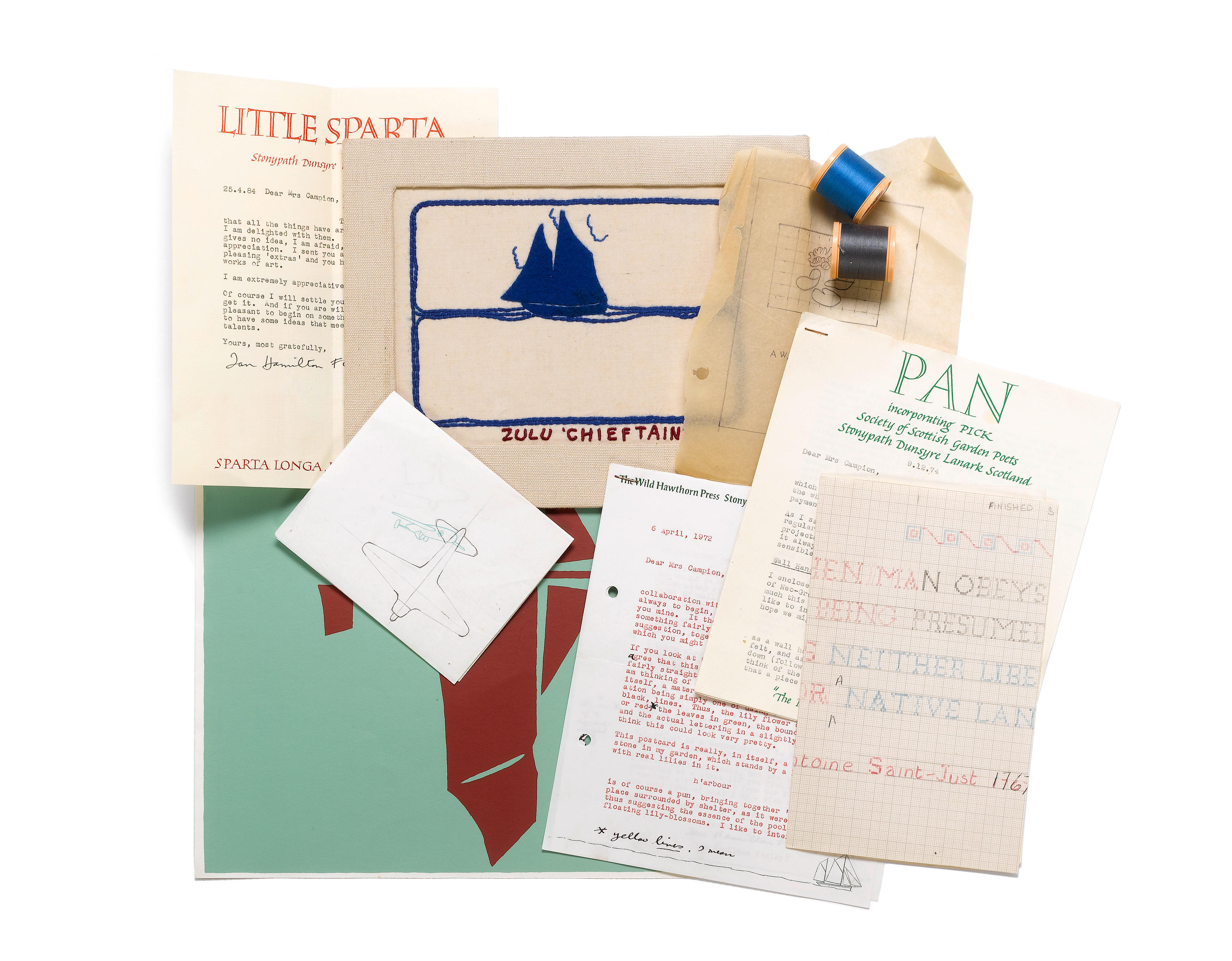


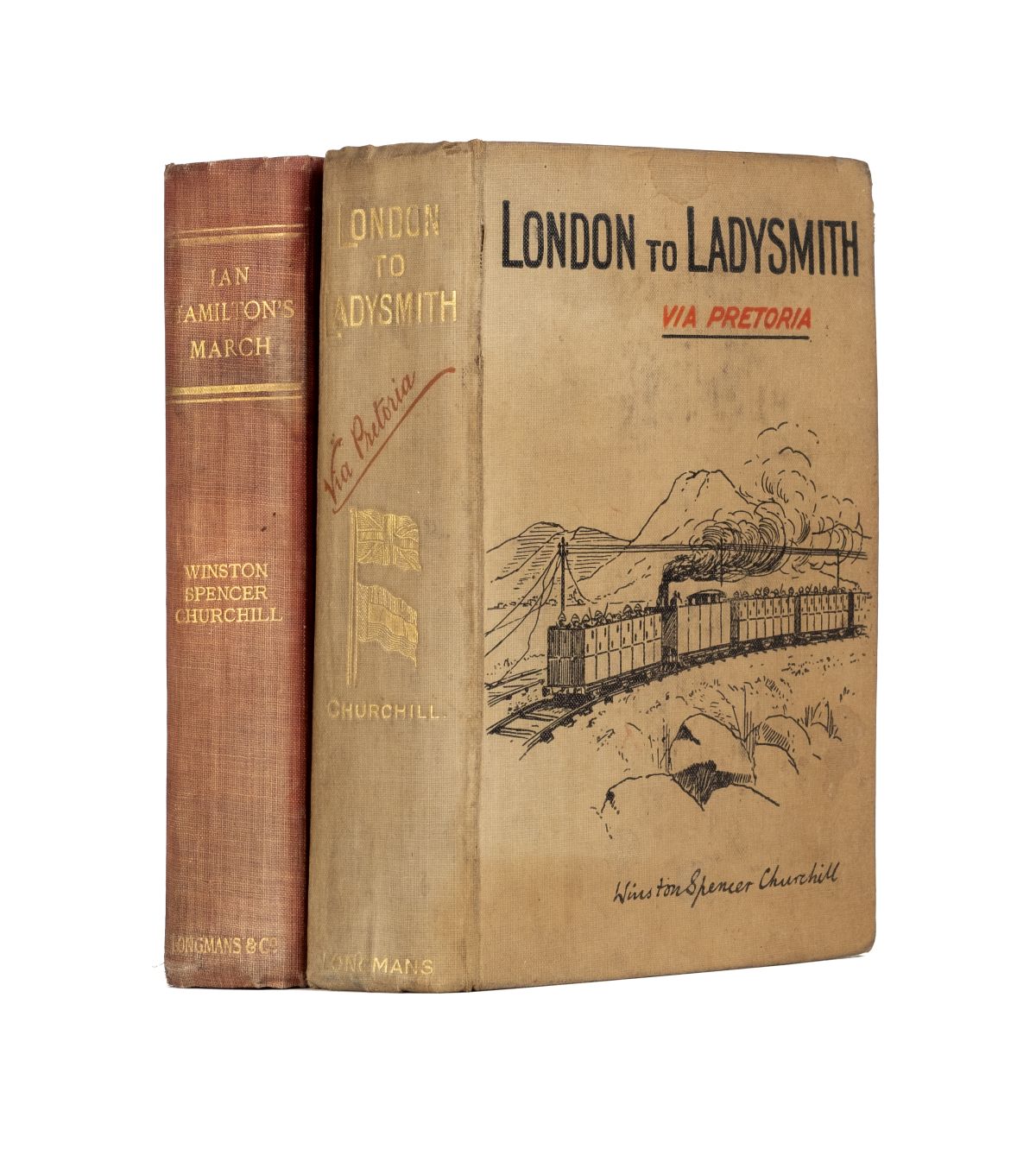
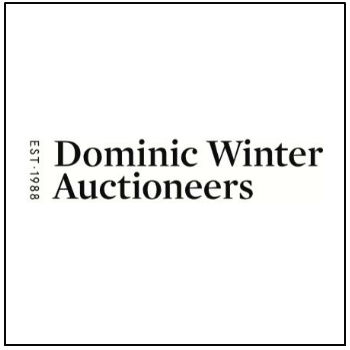
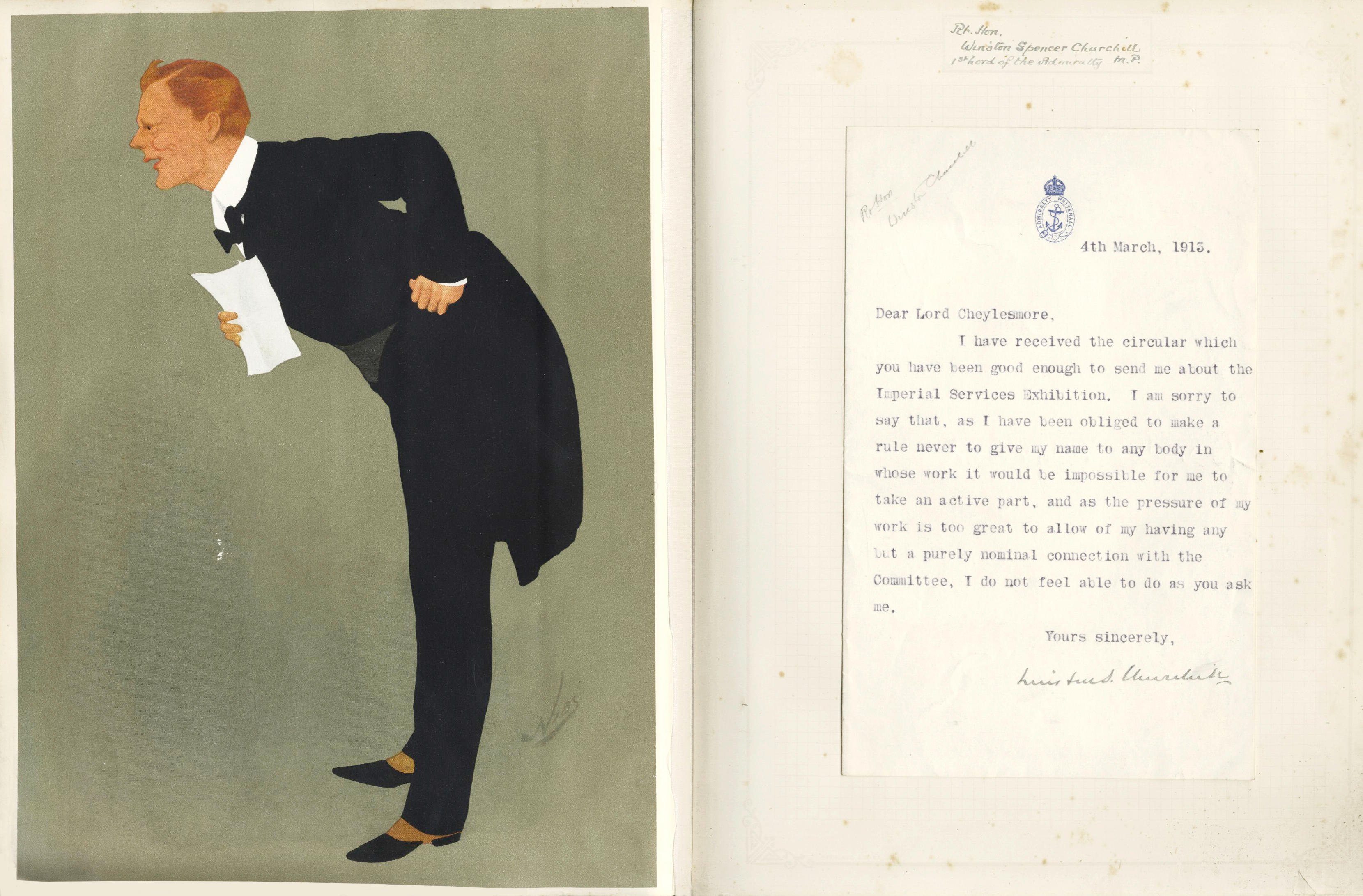
.jpg)
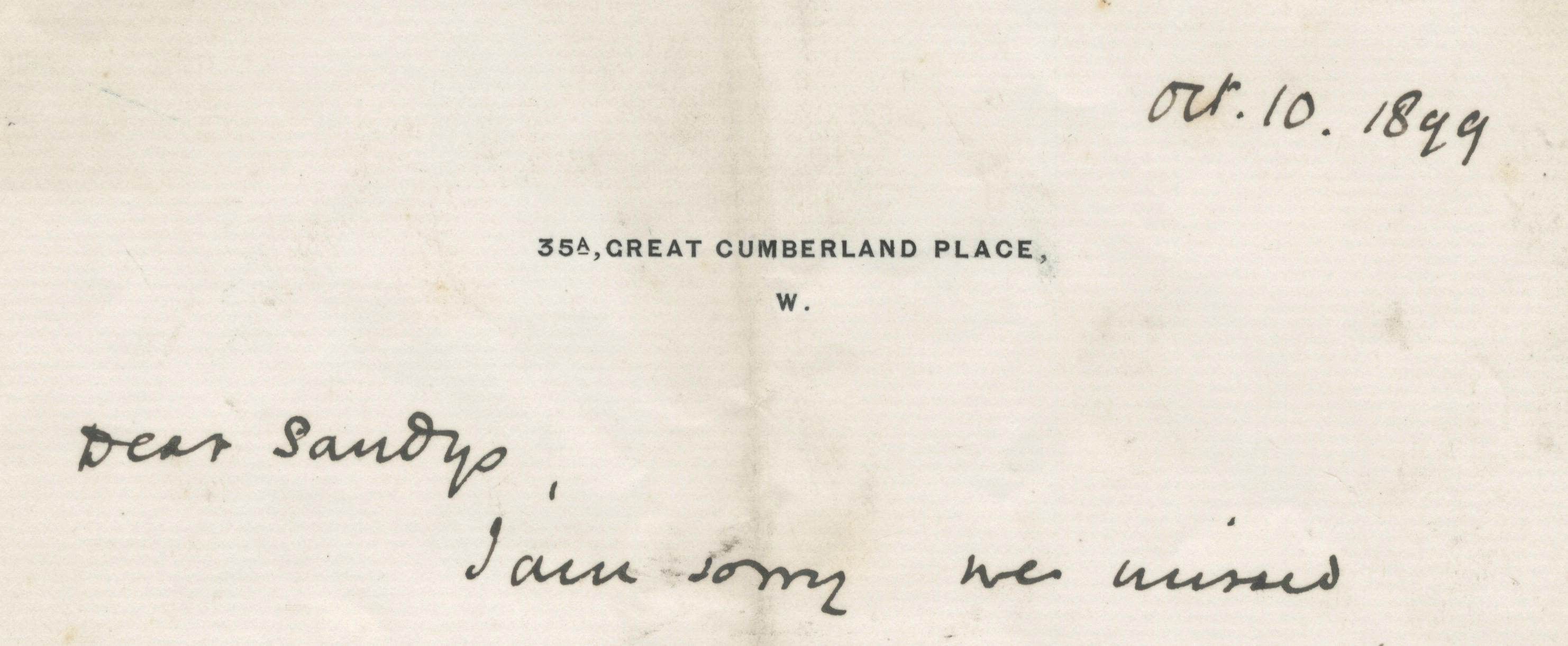







Try LotSearch and its premium features for 7 days - without any costs!
Be notified automatically about new items in upcoming auctions.
Create an alert